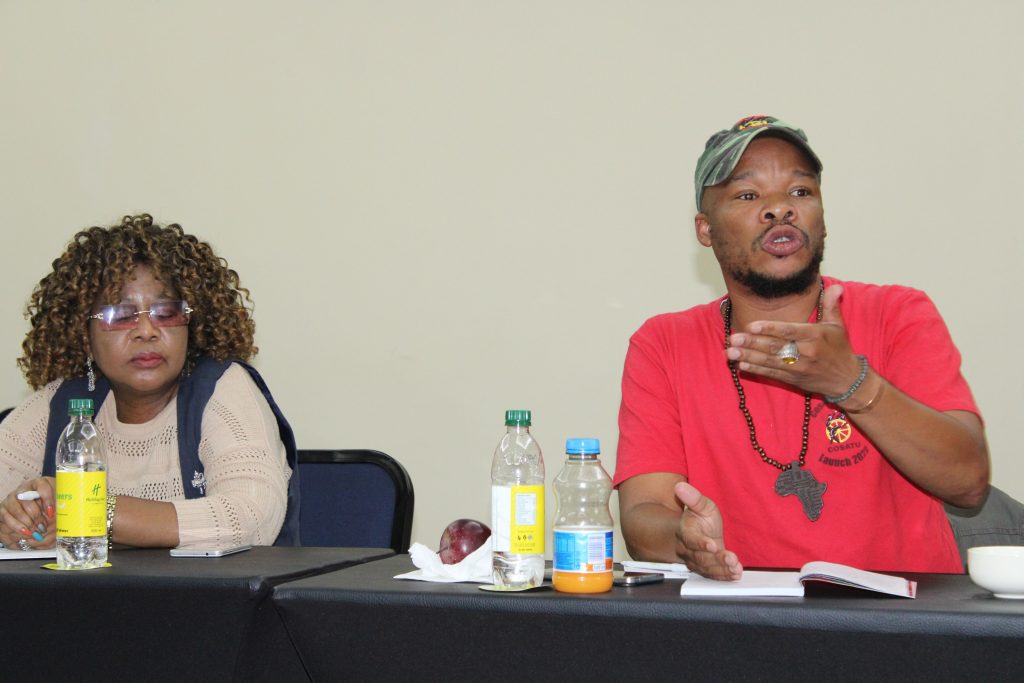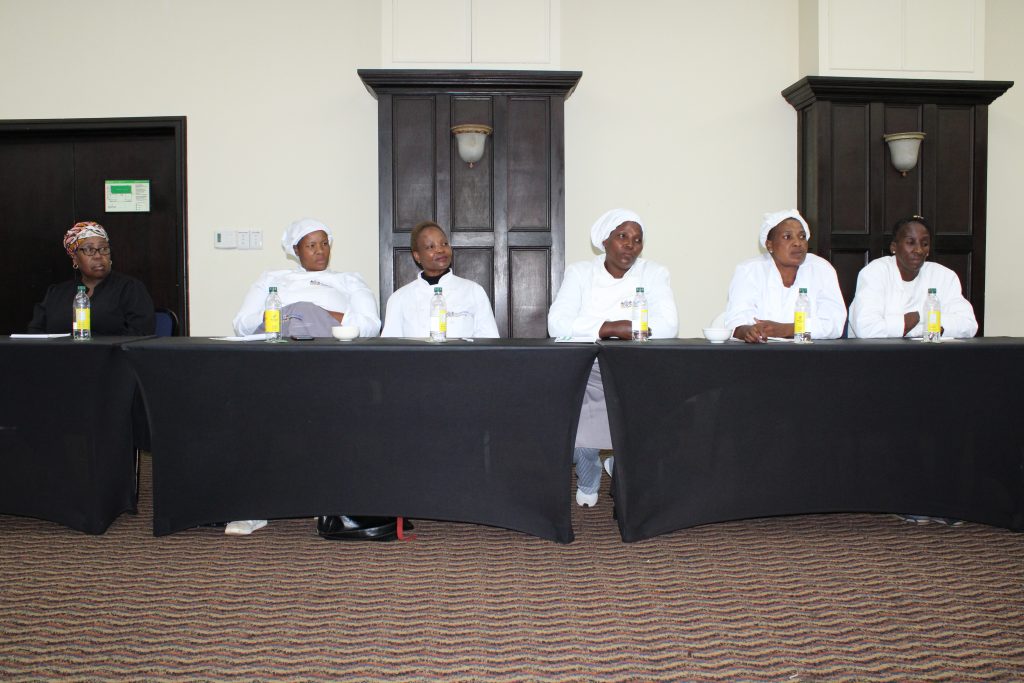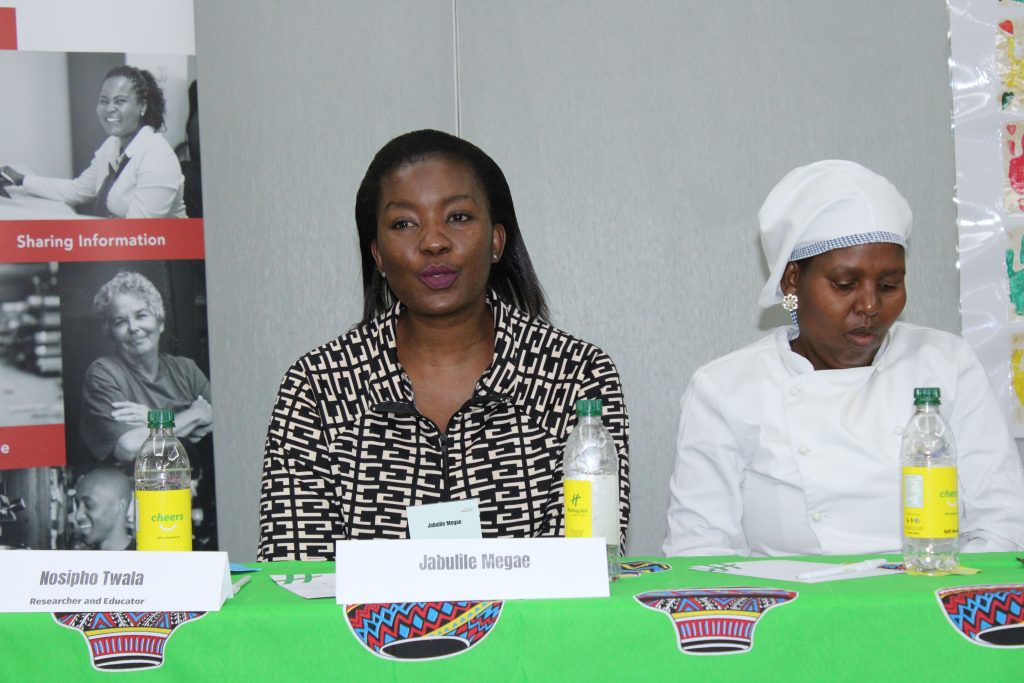Is the government prepared to listen to the voices of women? Volunteer Food Handlers want a dialog with the government.
Many women workers struggle to hold on to jobs that are becoming more and more informal. Recruiting women to volunteer has become another way of pushing women into unrecognized and poorly paid work.
The National School Nutrition Programme (NSNP) benefits over 9.6 million learners from disadvantaged communities. The NSNP recruits mothers of learners to prepare and cook meals in schools countrywide. They are called Volunteer Food Handlers and are an example of how women are recruited to volunteer for what should be a formalized job.

Why is the work of the volunteer food handlers not recognized as work, even though it is part of a key government intervention in the fight against hunger and malnutrition? Is this because volunteer food handler work is seen as extending women’s roles? Women do hard work as caregivers in the home. Not only is this work unpaid, but it is also often not seen as real work. When this work is done in the school, it is seen as an extension of women’s roles and, therefore, as voluntary rather than formal employment.
Over the past two years, the Labour Research Service (LRS) has had conversations with groups of volunteer food handlers in four areas of Gauteng who are committed to raising the visibility and value of their role in the NSNP.
At the media conference held in Johannesburg, the volunteer food handlers had an opportunity to voice their plea to the government to formalize their work and recognize the significance of what they do for learners. These women are often forgotten in the makeshift kitchen of the school, and there is very little appreciation of the value they add.

It starts with the remuneration structure: these mothers get paid as little as R1,500. Compared to the government’s National Youth Employment Program, which pays young people R3,500 Volunteer food handlers perform duties that go beyond just handling food. They act as social workers, and they are often faced with situations where they have learners who do not have food at home; such learners often ask for more food to take for their siblings.
South Africa has a crisis of water and electricity, and volunteer food handlers find themselves having to figure out how they can feed the learners when there is no electricity or water. They fetch wood to make a fire to cook; they must fetch water from their homes to cook; and they still have to wash the dishes and clean the pots afterward. At times, there is not enough cutlery, and these ladies must make a plan.
“I had to use gas at my school, and I was told that if it explodes, I am on my own. I inhaled the gas and got sick,” said one of the volunteer food handlers. “We are the hands and heart of the school nutrition program; we request the government have a dialog with us on how it can be formalized,” concluded one of the ladies.

Some of the unions that were in attendance and supported the voices of these women were SADTU, COSATU, and DENOSA. They vowed to support the call for the women in the school kitchen to be given a better working environment that is safe and suitable for the type of work they are doing. DANOSA highlighted the risks of food poisoning issues that may arise under the conditions these ladies find themselves working under. It should not be up to them to provide a suitable working environment and resources; that is the job of the government.
“Power Up is a platform that gives these women a voice to be heard and ensures they access the resources they need. Their work is not highlighted; they are just stuck in the kitchen and forgotten by everyone. Therefore, we are strategically looking to bring in other like-minded partners to help expand the voice of volunteer food handlers. When these women get injured while performing their duties, they have no compensation; all they are told is to get their relatives to come and fill in for them while they are away. These women are cleaners, chefs, and social workers, and now they are supposed to teach about good nutrition,” concluded Nina Benjamin from Power Up.



“We want our learners to know that we are their parents. Sometimes, when food runs out and we cannot feed everyone, it is not us who deliberately do that; it is because the department of education did not send enough food to fit everyone. We love what we do because it brings a smile to the child’s face, and they get to go to class on a full tummy; any parent would be proud of that. Therefore, we hope that from this meeting, the government can come to the table to have a dialog with volunteer food handlers and hear their voice,” said Jabulile Mogane.

There was also a cry about learners who have shown very little to no respect for these mothers; maybe the problem starts at the department of education, which has shown very little to no respect to these ladies through how they treat them, and it trickles down to the learners.
They are there to ensure the success of the School Nutrition Program, formalize their work, recognize them as workers, pay them as per the value they offer, and treat them with respect. Just because some of them are illiterate does not mean they are just doormats for everyone; they are humans, but most of all, they are mothers who care.
